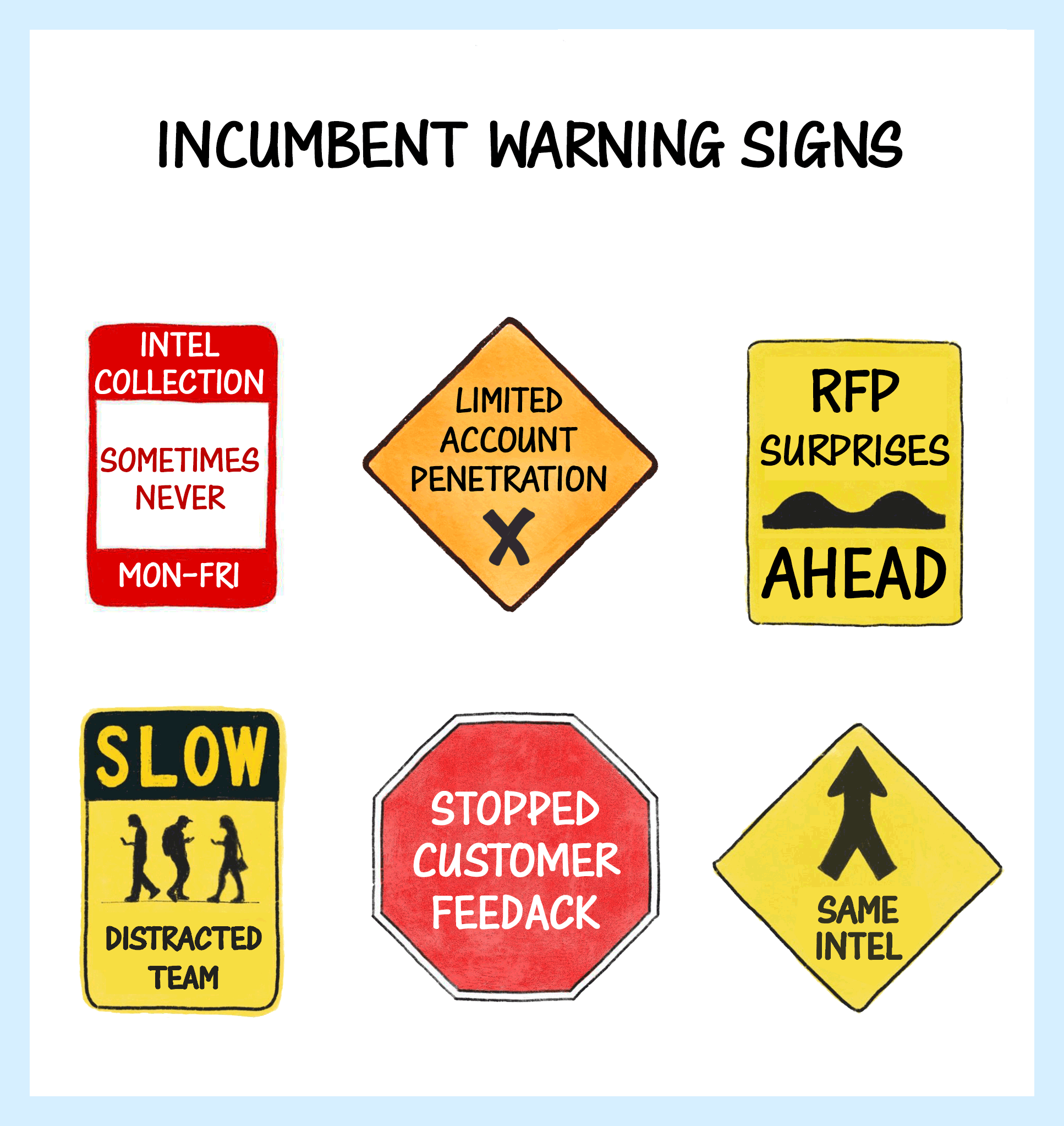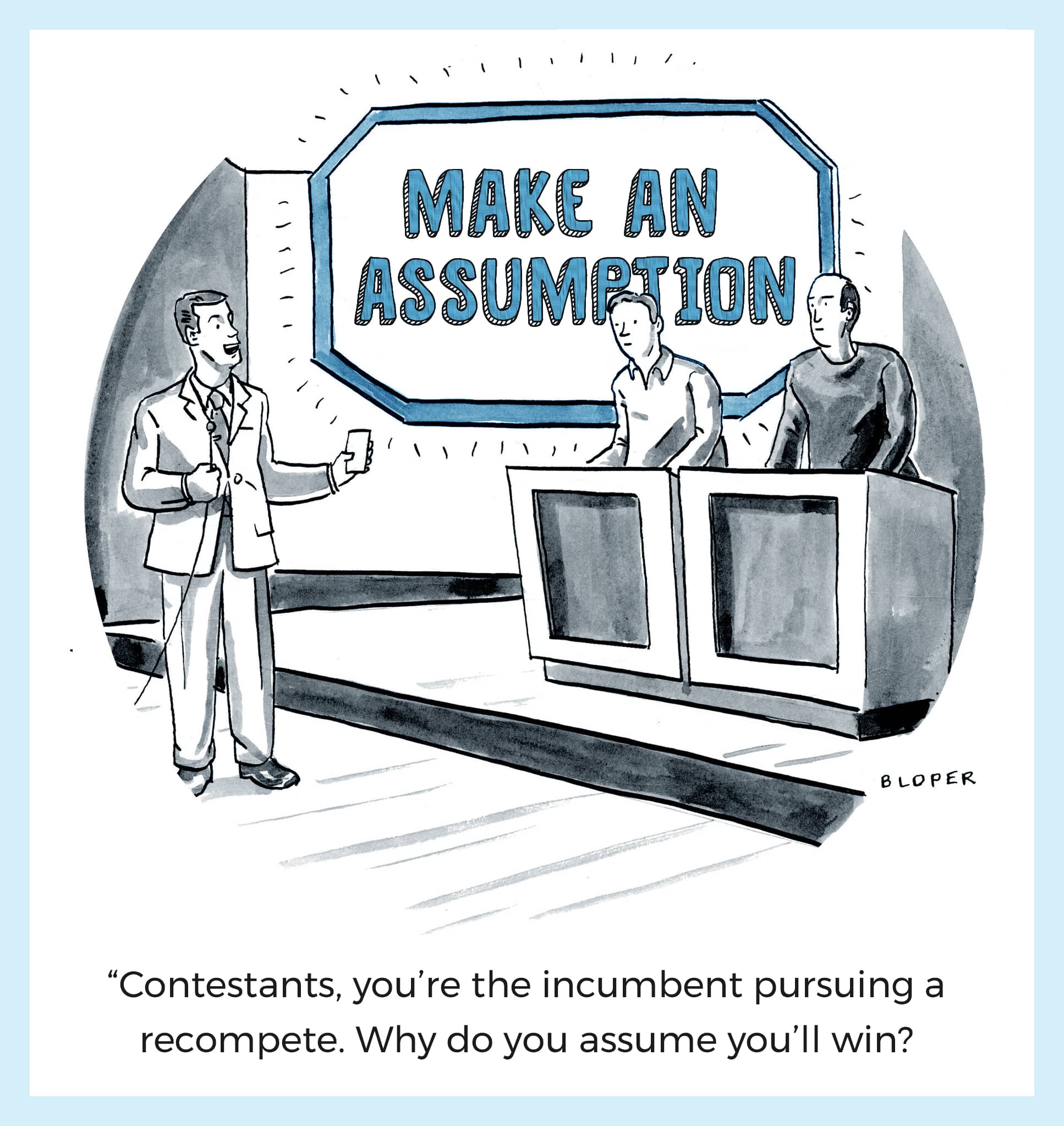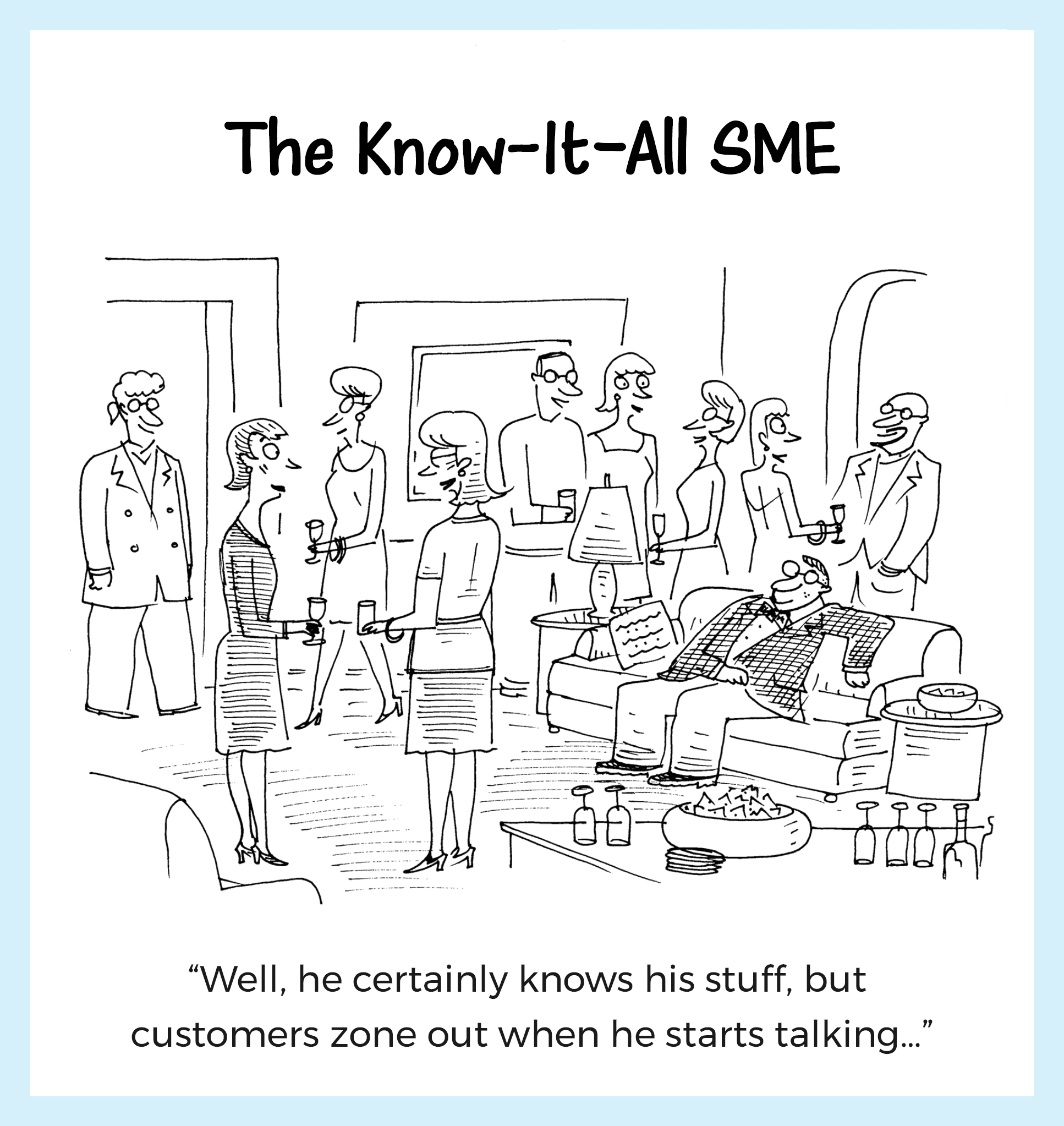RESOURCES ⇢ B2G
Recompete Contracts: Definitions & Trends You Need to Know
Recompete Contracts: Trends & Terms You Need to Know
Whether you’re a seasoned pro or this is your first recompete, this guide will help you understand key terms, trends, and best practices from high-performing teams.

Successfully navigating the long game of government contracting requires a deep understanding of recompete dynamics, where existing contracts are re-opened for competitive bidding, challenging incumbents to prove their value.
This guide breaks down key terms you’ll need to know about recompete contracts and related best practices for a winning strategy.
First, let’s start with a definition of a recompete:
Recompete Definition
An existing federal contract that has reached the end of its term and is re-opened for competitive bidding, allowing the incumbent contractor and new competitors to vie for the renewed agreement. It challenges the incumbent to demonstrate continued value while providing opportunities for other firms to win the work, often intensifying competition.
A high-performing recompete win rate is 80%—what’s yours?
Deltek Federal Procurement Success
If you would like to learn more about best practices, check our our recompete resources.
Now, let’s cover terms you’ll often hear in a recompete process along with best practices and guides you’ll want to implement with your team along the way.
Active Listening
In recompetes, this skill is essential. Active listening is fully hearing and understanding a customer’s feedback—like new agency needs—during a contract, so your program team can catch shifts competitors miss and stay ahead in a recompete.
If your team lacks the skills to ask the right questions and actively listen for competitive intelligence, you’ll place your recompete at risk.
This often shows up in many ways, including:
- Vague, unreliable, or assumptions about customer needs
- Poor understanding of changes to procurement strategies and requirements
- No vetting of potential solutions or shaping customer thinking
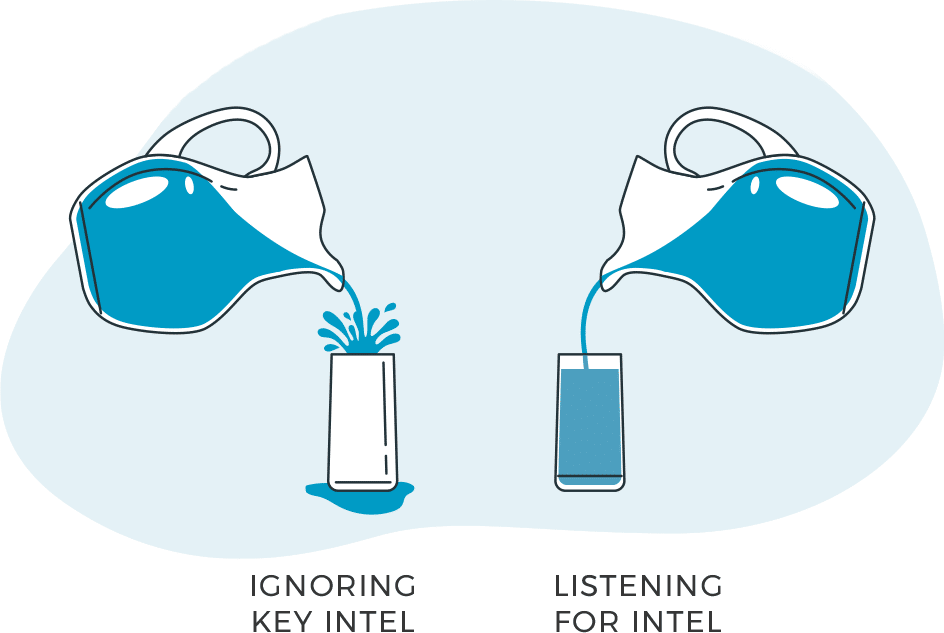
The result over time?
Misaligned proposals, missed opportunities, lost recompetes, and millions in missed revenue.
leadership TIP:
If your business development or frontline delivery team (PMs, SMEs, etc.) struggles to find discriminators, they are most likely overestimating their relationships with your customers and require new growth skills to connect, gather intelligence and share that internally with your team to protect your upcoming recompetes.
Teams that excel at customer engagement are 80% more likely to win competitive bids. (2023 Deltek Clarity Report)
Aligned Customer Engagement
A cohesive, team-wide approach to interacting with customers, where every employee engages consistently and purposefully to advance the organization’s growth objectives.
At Hi-Q Group, this means delivering unified, value-driven experiences that strengthen Customer Relationship Score (CRS), enhance trust, and maximize win probability (PWin) by aligning individual efforts with strategic goals, ensuring customers experience a seamless partnership that drives mutual success and long-term loyalty.
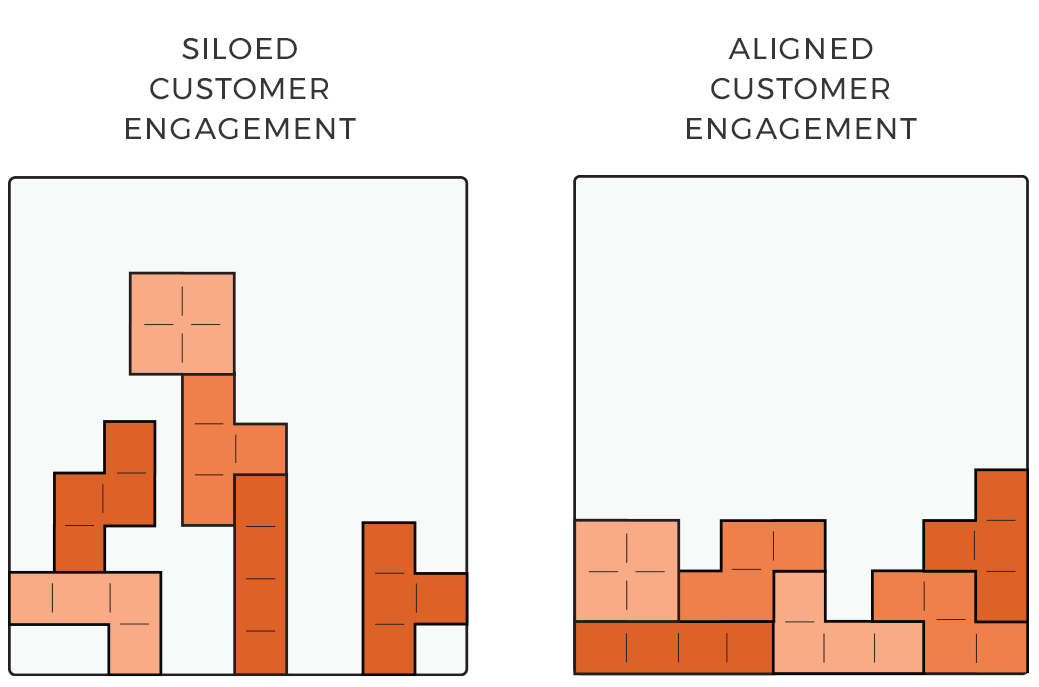
Bid
A contractor’s proposal in response to an RFP, detailing how they will fulfill the government’s needs.
Bidder’s Conference
A meeting held by the government to provide potential bidders with information about the RFP, allowing for clarification of requirements.
Bid Protest
A formal challenge to the government’s award decision, typically filed by an unsuccessful bidder seeking a review of the selection process.
Best Value
A procurement approach that emphasizes both quality and price, seeking the most advantageous offer for the government.
CEOs who prioritize customer-centricity are 60% more likely to outperform their competition. (Deloitte)
Capture Management
The strategic process of positioning a company to win a recompete by leveraging relationships and past performance.
Change Order
A formal request to modify the scope of work or contract terms, often leading to adjustments in costs or timelines.
Client Partnership
Building a collaborative, trust-based bond with an agency through shared goals, making them hesitant to switch to a new bidder during a recompete.

Businesses need to constantly evaluate how they do business with people. [This training] will create a team enabled to build deep embedded partnerships that provide the business long term, sustainable and desirable results across the organization.
Client Trust Building
Earning an agency’s confidence with consistent, honest actions over the contract term, locking in loyalty that sways recompete decisions your way.
Collaborative Problem-Solving
Working alongside an agency to tackle issues—like budget cuts—during the contract, showing teamwork that strengthens your recompete case.
RECOMMENDED GUIDE
Compliance
Adherence to all applicable laws, regulations, and contract terms, ensuring that the contractor meets required standards.
Contract Administration
The process of managing and overseeing the contract’s execution of federal programs to ensure compliance with terms and conditions.
Contract Award
The official notification that a contractor has been selected to execute the contract, marking the beginning of the contractual relationship.
Although prioritizing customer relationships can increase win rates by 63%¹, only 28% provide formal training in areas like relationship building, emotional intelligence, and customer-centric selling.²
¹ PROFESSIONAL SERVICES COUNCIL | ² APMP STUDY
Contract Closeout
The formal process of completing all contractual obligations and finalizing all administrative tasks once a contract is fulfilled.
Contract Modification
A formal amendment to the terms of the contract, often necessitated by changes in project requirements or conditions.
Contracting Officer
A government official authorized to enter into, administer contracting activity, and terminate contracts on behalf of the government.
Contractor Responsibility
A determination that a contractor has the capability, resources, and integrity to perform the contract satisfactorily.
Customer Empathy
Understanding and sharing an agency’s pressures—like tight deadlines—to build emotional ties that make you hard to replace in a recompete.
Customer Engagement Skills
The knack for connecting with clients meaningfully, using empathy and communication to build rapport. These skills enhance interaction with customers, driving customer retention rates and fostering positive relationships.

This course will open your eyes to a whole new approach to customer engagement.
Customer-Focused Engagement
An interaction approach where the customer’s voice takes precedence, with the team listening more than speaking to deeply understand their needs, priorities, and motivations.
Instead of leading with pre-set solutions or capabilities, employees emphasize co-developing tailored outcomes alongside the customer, fostering trust and ensuring solutions align with what truly drives them, strengthening the partnership through mutual discovery and respect.

Organizations are 80% more likely to win their teams excel at customer engagement. (Deltek)
Customer Insights
Gathering deep intel—like stakeholder changes or funding hints—over the contract, giving you an edge competitors can’t match in a recompete.
Customer Intelligence
Actionable insights gathered directly from customer interactions, encompassing every piece of data—spoken preferences, behavioral cues, and contextual hints—that informs tailored solutions, contract negotiations, or opportunities for on contract growth.
RECOMMENDED GUIDE
Customer Intimacy
The deliberate practice of forging deep, enduring relationships with customers by gaining a profound understanding of their needs, preferences, and aspirations through consistent, empathetic engagement.
It goes beyond surface-level conversations, requiring employees to listen intently, anticipate challenges, and uncover the subtle drivers behind customer behaviors—often not shared in typical exchanges or meetings, giving you a competitive factor over others.
Customer Relationship Score (CRS)
A measure of trust, emotional connection, and strategic alignment between employees and customers, assessed by those with customer access, like business developers or delivery teams, to boost win probability (PWin) and guide deeper relationships.
Customer Relationship Strategies
Using recompete plans to drive proactive customer check-ins to stay aligned with agency needs, building a trust advantage that wins recompetes.
recommended guide
Debriefing
A meeting conducted after a federal award where unsuccessful bidders can receive feedback on their proposals and understand the selection process.
Eligibility Criteria
Specific requirements that contractors must meet to qualify for bidding on a contract, often outlined in the RFP.
Emotional Intelligence (EI) in CRM
Managing your emotions and the agency’s during contract talks—like budget reviews—to ensure relationships are steady and strong for a recompete.
Prioritizing customer relationships can increase win rates by 63%! (Professional Services Council)
Evaluation Criteria
The standards used by the government to assess proposals, ensuring a fair and systematic selection process.
Federal Acquisition Regulation (FAR)
The primary set of rules governing federal procurement processes, ensuring standardization and compliance across government contracts as it relates to bidding process, procurement standards and other aspect of government contracting.
Federal Contracting Authority
The legal and regulatory framework governing how federal contracts are awarded, managed, and executed.
GSA Schedule
A contract vehicle that allows government agencies to purchase goods and services from pre-approved vendors at negotiated prices.
Incumbency Advantage
The edge an incumbent contractor and their program team has in a recompete due to established relationships and proven performance.
“Incumbentitis”
The complacency that leads incumbents to understimate the competitive nature of recompetes, overestimate customer relationships, use outdated recompete plans or avoid additional planning altogether resulting in underperform in a recompete. For more on this, check out our feature, This Fixable Recompete Mistake Can Cost Your Organization Millions.


industry opinion:
Over the last year, dozens of leaders have called me about the same problem.
“We have difficult decisions to make now.”
Indefinite Delivery Indefinite Quantity (IDIQ)
A type of contract that provides for an indefinite quantity of supplies or services during a fixed period, allowing for flexibility in ordering.
Incentive Contract
A type of contract that includes financial incentives for contractors to exceed performance targets, encouraging efficiency and excellence.
Influence Through Insight
Sharing smart ideas—like time-saving tips—during the contract to sway agency stakeholders, boosting your recompete pitch.
Invitations for Bids
Invitations for Bids or Invitation of Bid (IFB) is a formal request issued by a government agency soliciting sealed bids from potential suppliers or contractors for a specific project or service.
Market Research
The process of gathering information about the market to inform procurement decisions, ensuring that the government understands available options.
Needs Assessment
Pinpointing an agency’s pain points—like new rules—mid-contract to tailor solutions, showing why they should stick with you in a recompete.
RECOMMENDED VIDEO
Negotiation
The process of discussing and reaching an agreement on contract terms and conditions between the government and the contractor.
Past Performance
An assessment of a contractor’s previous work on government contracts, which can influence future award decisions.
Performance Bond
A financial guarantee that ensures the contractor will complete the project according to the terms of the contract.
Performance Evaluation
An assessment of a contractor’s performance during the execution of a contract, often influencing future contract awards.
RECOMMENDED GUIDE
Performance Metrics
Specific measurements used to evaluate the effectiveness and efficiency of the contractor’s performance.
Price Proposal
A component of the bid that outlines the financial aspects, including pricing structures and cost justification.
Proactive Engagement
Reaching out to an agency before problems hit—like spotting a staffing gap—showing care that keeps you top-of-mind in a recompete.


industry opinion:
What recompete assumptions does your team have? The answers may surprise you.
Proactive Trust-Building
Taking early steps—like fixing issues unasked—to earn agency trust during the contract, creating loyalty that blocks competitors in a recompete.
Proposal Clarification
A process during which the government may request additional criteria, information or clarification from bidders to ensure understanding of proposals.
Proposal Review Panel
A group of individuals appointed to evaluate submitted proposals against established criteria and make recommendations and ensure competitive procurement restrictions haven’t been breached.
Proposal Submission Deadline
The final date by which contractors must submit their proposals; late submissions are typically not considered.
Proposal Submission Guidelines
Instructions provided in the RFP that outline how to format and submit proposals, ensuring compliance with government requirements.
Recompete Strategy
Recompete plans to retain a contract in a recompete by blending performance, relationships, and competitive positioning.
96% of unhappy customers won’t openly let you know their complains, and 89% will simply leave when possible. (Lee Resources International)
Relationship Building
Growing trust with agency staff through steady rapport over the contract, making a switch to a competitor feel risky in a recompete.

Highly recommend this course to anyone who wants to improve their skills. This method is like nothing else and is SPOT ON for relationship building.
Relationship Depth
The closeness and understanding in customer ties, marked by open trust. Hi-Q Group clients measure this aspect in the Customer Relationship Assessment.
Relationship Calibration
Tweaking your approach based on agency feedback—like new goals—mid-contract to stay aligned and strong for a recompete.
Request for Proposal (RFP)
A formal document issued by the government outlining specific requirements and inviting contractors to submit proposals.
Request for Quote (RFQ)
A document used to solicit price quotes from contractors for specific goods or services, often used for simpler purchases.
Risk Management
The identification and mitigation of potential risks associated with contract performance, ensuring project stability.
Strong engagement strategies can increase your annual revenue up to 23%. (Aberdeen Group)
Scope of Work (SOW)
A comprehensive description of the tasks and deliverables required under the contract, serving as a project blueprint.
Set-Aside Contract
Contracts specifically reserved for small businesses or certain categories of contractors to promote inclusivity in government procurement.
Small Business Administration (SBA)
A U.S. government agency that supports small businesses, often involved in setting aside contracts or providing resources.
Sole Source Contract
A contract awarded without a competitive bidding process, typically justified when only one contractor can fulfill the requirements.
Stakeholder Engagement
Connecting with all key agency players—not just one contact—during the contract to widen your influence for a recompete win.
80% believe they deliver great customer experience, but only 8% of customers agree demonstrating a large disconnect. (Bain & Company)
Stakeholder Mapping
Identifying an agency’s decision-makers mid-contract to target trust-building, giving you a recompete edge over less-connected bidders.
Strategic Listening
Hearing beyond agency words—like hints at future needs—to craft a recompete proposal that nails their priorities.
Subcontracting Plan
A document that outlines how a prime contractor intends to utilize subcontractors, particularly for small business participation.
Subcontractor
A third-party contractor engaged by the primary contractor to perform specific tasks or services as part of the overall project.
Technical Evaluation
A systematic review of the technical aspects of proposals to determine how well they meet the specified requirements.


industry opinion:
Hard truth: Customers don’t care if your SME is the smartest person in the room.
Technical Proposal
A component of the bid detailing how the contractor will meet the technical requirements of the RFP.
Companies that prioritize customer relationships and involve subject matter experts in sales interactions have a 63% higher win rate. (Professional Services Council Survey)
Termination for Cause
A clause that allows for contract termination due to the contractor’s failure to perform as stipulated, often leading to penalties.
Termination for Convenience
A clause that allows the government to terminate a contract at its discretion, typically with prior notice, without cause.
Third-Party Assessment (TPA)
An external review of customer feedback during a contract to strengthen relationships and improve recompete odds.
Time of Award
Time of Award refers to the date the government officially notifies the successful offeror (contractor) that their proposal has been accepted and a contract is awarded.
Trust Building
Creating agency confidence with reliable, honest moves throughout the contract, making you the safe choice over untested rivals in a recompete.
Winning Relationship®
A winning relationship® involves mutual respect, trust, open communication, and a commitment to building a strong foundation of emotional intimacy and shared goals.



